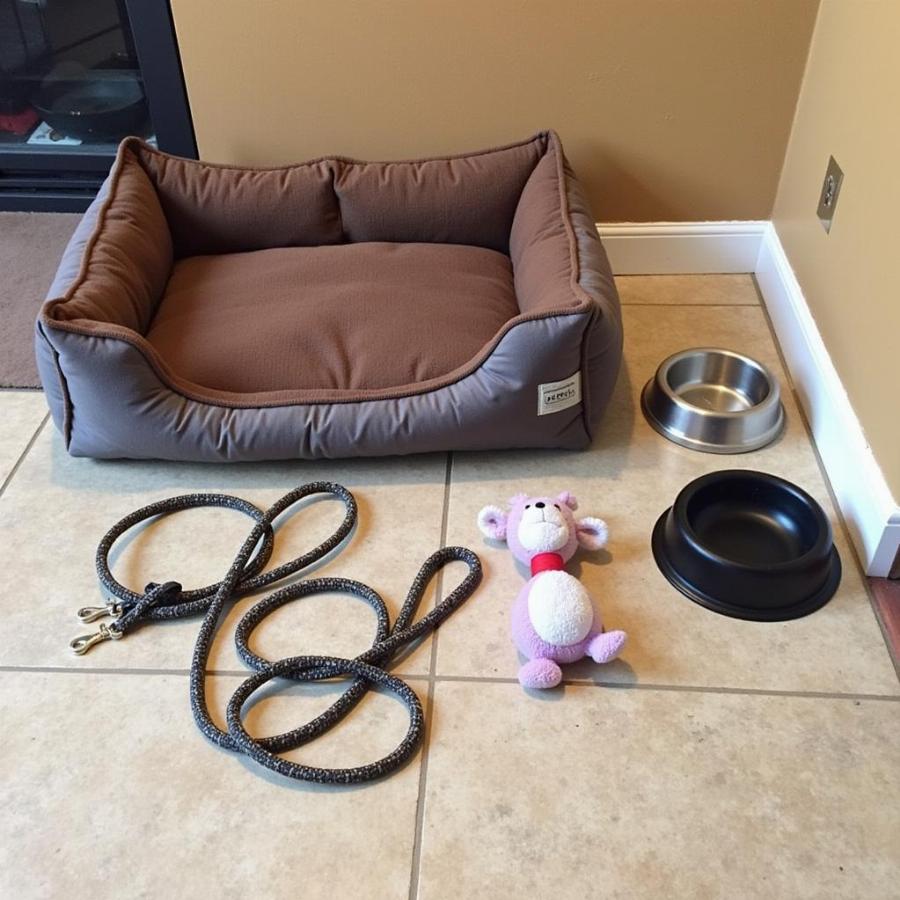The decision to surrender your dog is never easy. It can be an emotionally charged time filled with guilt, sadness, and uncertainty. However, it’s important to remember that sometimes, surrendering your dog is the most responsible and loving choice you can make for both of you. There are many reasons why responsible owners may find themselves facing this difficult decision, and understanding those reasons is the first step in navigating this challenging process.
When Surrendering Your Dog is the Right Decision
Life throws curveballs, and circumstances can change unexpectedly. Here are some common situations where surrendering your dog might be necessary:
- Financial Hardship: Unexpected job loss, medical emergencies, or other financial setbacks can make it difficult to provide for a pet’s needs.
- Moving to a Non-Pet-Friendly Home: Relocating to a new home that doesn’t allow pets, or has breed restrictions, can force difficult choices.
- Major Life Changes: Events like a new baby, a serious illness, or a divorce can significantly impact your ability to care for a dog.
- Behavioral Issues: Some dogs develop behavioral issues that, despite best efforts with training and professional help, make them unsafe to keep in the home.
It’s crucial to remember that surrendering your dog should always be a last resort. Before making this decision, explore all other options, such as reaching out to family, friends, or local rescue organizations for temporary foster care or financial assistance.
Finding a Safe Haven: Choosing the Right Place to Surrender Your Dog
Once you’ve made the heart-wrenching decision to surrender your dog, it’s essential to find a safe and reputable place for them. Avoid “no-kill” shelters at all costs, as these facilities often have limited space and long waiting lists. Here are the best options for ensuring your dog’s well-being:
- Local Animal Shelters: These shelters are usually run by the city or county and take in a wide variety of animals, including dogs.
- Breed-Specific Rescues: If you have a purebred dog, look for breed-specific rescue groups in your area. These organizations specialize in placing dogs of a particular breed into loving foster homes.
- Private Shelters: Privately run shelters often have more resources and may be able to provide additional care for dogs with special needs.
When you contact a shelter or rescue, be prepared to provide detailed information about your dog, including their age, breed, medical history, temperament, and any behavioral issues.
Preparing for the Surrender: Making the Transition Easier
 Packing Dog's Belongings
Packing Dog's Belongings
Saying goodbye to your dog is difficult, but you can take steps to make the transition as smooth as possible for both of you:
- Gather Medical Records: Bring all vaccination and medical records to the shelter. This information will help them provide the best possible care for your dog.
- Pack Familiar Items: Send your dog with familiar items, such as their bed, favorite toys, and a blanket with your scent on it. These objects can provide comfort in a new environment.
- Write a Letter to the Adoptive Family: Compose a heartfelt letter about your dog’s personality, likes, dislikes, and any special needs they may have. This will help the shelter staff find the perfect forever home for your furry friend.
Coping with the Emotional Impact of Surrendering Your Dog
Surrendering a dog is an emotional experience. Allow yourself to grieve the loss of the companionship you shared, and don’t be afraid to seek support from friends, family, or a therapist. Remember that you made the best decision you could under difficult circumstances, and that your act of love will give your dog the chance to find a happy ending.
Frequently Asked Questions About Surrendering a Dog
- What happens to my dog after I surrender them? Most shelters and rescues will assess your dog’s health and temperament. They’ll then be placed up for adoption, with the goal of finding them a loving forever home.
- Will my dog be euthanized if they aren’t adopted? Euthanasia policies vary depending on the shelter. Some shelters are “no-kill,” while others may euthanize animals for space or behavioral reasons. Ask about the shelter’s policy when you contact them.
- Can I visit my dog after I surrender them? Visitation policies differ between shelters. Some may allow visits, while others discourage it to help the dog adjust to their new environment more quickly.
- Is there a fee to surrender my dog? Many shelters request a surrender fee to help cover the costs of caring for your dog. The amount varies, but most shelters are willing to work with owners who are facing financial hardship.
Need More Help?
Beaut Dogs is here to support you every step of the way on your journey as a dog owner, even through the tough decisions. If you’re considering surrendering your dog, or need more information about the process, please reach out to us at [email protected]. Our team of experts can offer guidance, resources, and compassionate support during this difficult time.